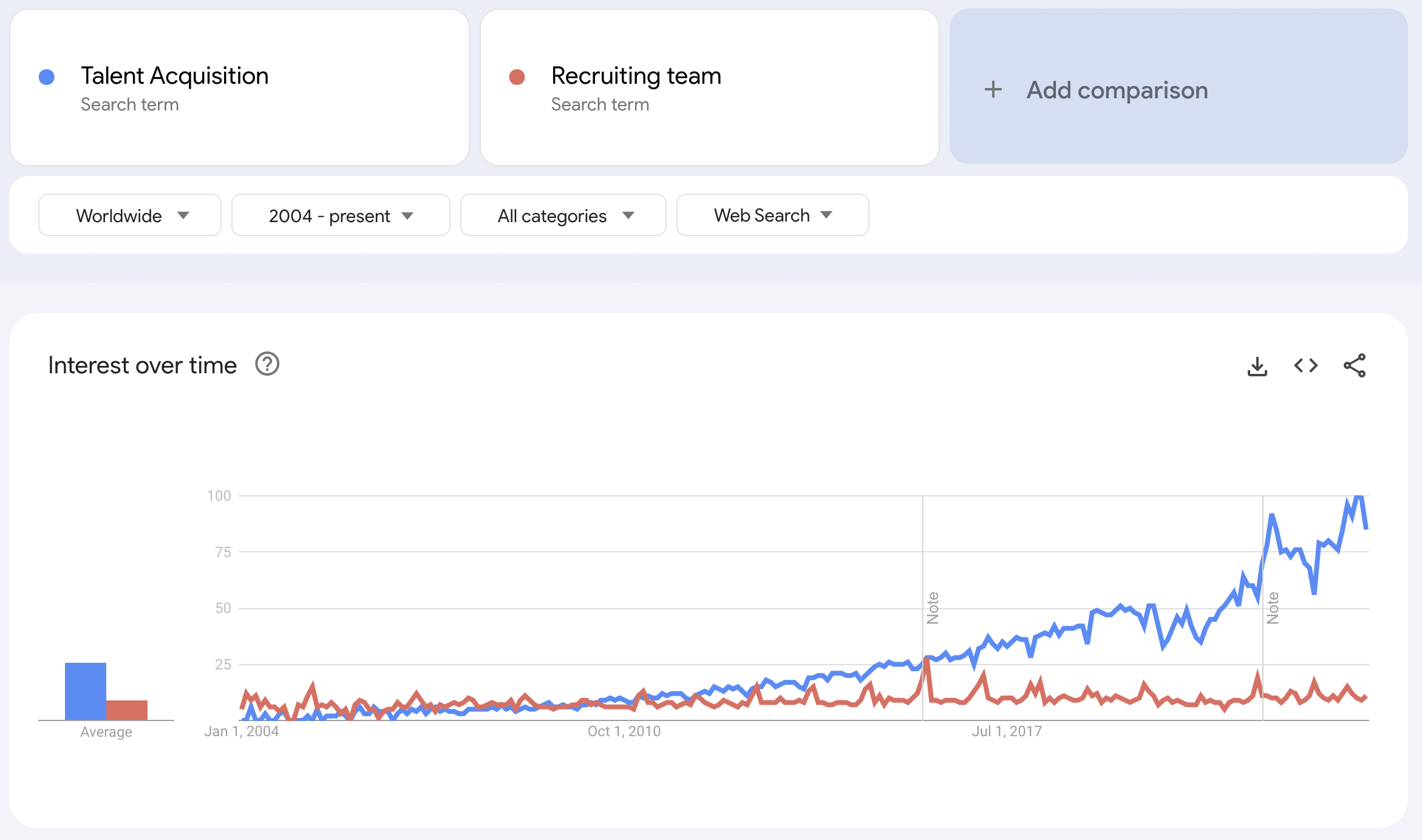Talent Acquisition vs Recruiting
What’s a good job?
- A place of work that provides you with the opportunity to learn and grow, so that you stay competitive for your next role.
- If the role only does one thing, you’ll be stuck doing that one thing as the “average” will be automated.
- Employee surveys show what people consider to be good benefits: Learning & Development supports. But even this might be changing with more trends going for individuals being responsible for their own learning.
Shifting Trends from Recruiting to Talent Acquisition
Google Trend search: Talent Acquisition vs Recruiting Team
- Hiring definition changed to fit the needs.
- Before: Junior, trained to do a job.
- Now: Senior, already know how to do the job.
What used to be the “general application” where you apply for a job and the company takes you through their OJT (Onboarding, Job Training), to now being asked to do the job on Day 1 or in a much shorter time frame. Prime example I find in Platform Engineering is the following question: “do you know how to do Infrastructure as Code? Terraform? Great. We use terraform and CDK. You’ll learn CDK on the job.” Accounting example might be: “do you know how to do payroll? Great. We use ADP. You’ll learn ADP on the job.”
I don’t mean you know a specific framework or tool, but the purpose of those tools and what problems those tools are used to solve for. If you can solve the problem with a different tool, great. If you can’t solve the problem, then you’re not a good fit for the role. Many roles are becoming more specialized and the OJT cannot be done in a reasonable time frame to prepare you for the task at hand.
 As the search terms showcase, the trend is shifting from “Recruiting” to “Talent Acquisition”. Recruiting will continue as you need to hire for roles that are not as specialized or operational roles. As more companies realize that they need to hire for people who have already solved the problem, the posting may be left unfilled even for 2 years.
As the search terms showcase, the trend is shifting from “Recruiting” to “Talent Acquisition”. Recruiting will continue as you need to hire for roles that are not as specialized or operational roles. As more companies realize that they need to hire for people who have already solved the problem, the posting may be left unfilled even for 2 years.
But how do you have seniors without juniors being trained?
This is a problem that I still have not found a satisfactory explanation for. I was fortunate enough that I learned from my seniors and they were patient enough to teach me. I was also fortunate enough to have the organizations that I’ve worked with that had a culture of tolerance and acceptance of failure as prerequisite for success.
If you can’t train juniors, then you can’t have seniors. If you can’t have seniors, then you can’t have an effective team and as an organization, you’ll be fighting for the same talent as all the other organization that has to hire.
Any solutions?
Based on my conversations with leaders, they are aware of this problem and the short-term solution is continuing to hire for strategic roles. Unfortunately, the long-term solution is not as clear. Augmenting capacity through assistive tools have been the most common solution, but the problem is that the tools are only as good as the people who use them. If the people who use them are not trained, then the tools are not used effectively. If the tools are not used effectively, then the problem is not solved.
Disclosure
All opinions are my own.